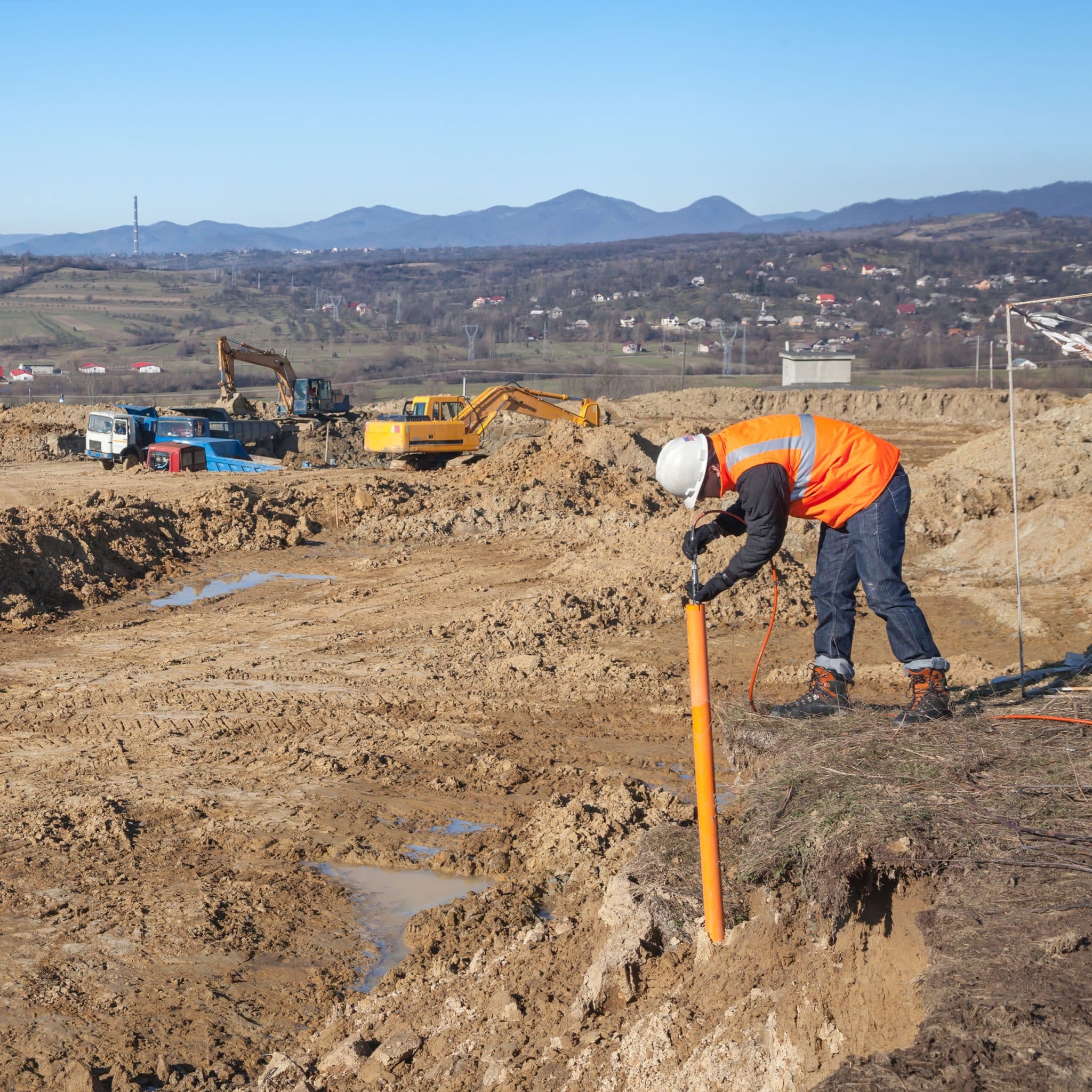Why Hiring a Geo Tech Engineer is Essential for Facility Building And Construction Jobs
Why Hiring a Geo Tech Engineer is Essential for Facility Building And Construction Jobs
Blog Article
The Interdisciplinary Approaches in the Geotechnical Sector: Linking the Gap Between Design, Geology, and Environmental Scientific Research for Ideal Task Outcomes
The assimilation of design, geology, and ecological science within the geotechnical sector is not merely advantageous; it is important for accomplishing optimal job end results. What techniques might arise to facilitate this crucial partnership and improve the effectiveness of geotechnical techniques?
Importance of Interdisciplinary Cooperation
The relevance of interdisciplinary partnership in the geotechnical industry can not be overstated. Efficient geotechnical projects need the integration of varied competence from various areas, including design, geology, and ecological science. This partnership guarantees that all aspects of a task are thought about, resulting in extensive services that address complicated challenges.
Interdisciplinary cooperation promotes development by enabling specialists to share understandings and approaches that may not be evident when operating in seclusion (geotechnical engineers). By leveraging the staminas of numerous techniques, groups can recognize potential dangers, optimize design procedures, and boost the sustainability of geotechnical projects. Such cooperation advertises an alternative understanding of site-specific problems, which is critical for accurate analysis and decision-making.
The complexity of geotechnical projects demands a collaborated strategy to analytical. When engineers, geologists, and environmental researchers function together, they can produce a natural approach that aligns technical demands with environmental considerations and governing compliance. This harmony not only boosts project results but additionally adds to the long-term durability of framework. Eventually, interdisciplinary collaboration is crucial for advancing best techniques and achieving quality in the geotechnical sector.
Key Roles of Each Discipline
Collaboration among numerous self-controls is not just beneficial; it is vital for the successful execution of geotechnical tasks. Each self-control-- design, geology, and ecological science-- plays a distinct yet interconnected duty that adds to forecast efficiency and sustainability.
Geotechnical engineers are mainly liable for developing foundations and making certain architectural integrity. They evaluate dirt and rock properties to assess load-bearing abilities, giving necessary data for safe construction techniques. Their competence allows the solution of innovative solutions to intricate obstacles.

Ecological researchers assess the prospective effects of building and construction on ecosystems and water resources. They perform environmental evaluations and establish reduction strategies to minimize adverse results. By integrating ecological considerations, they make sure compliance with regulations and promote sustainability throughout the job lifecycle.
Case Research Studies of Effective Combination
Effective integration of geotechnical self-controls can be exemplified with different study that highlight the effectiveness of synergy in resolving intricate engineering challenges. One notable example is the building and construction of the Hong Kong-- Zhuhai-- Macau Bridge, where a joint click for more approach involving geotechnical engineering, geology, and environmental scientific research was important. Engineers and rock hounds functioned in unison to analyze the seabed conditions and enhance the structure layout, making certain security and reducing ecological effect.
An additional impactful instance is the enhancement of slope stability in the San Francisco Bay Location, where an interdisciplinary group integrated geotechnical analysis with environmental analyses. By integrating hydrological research studies and geological surveys, the group effectively identified prospective landslide risks and applied reliable mitigation procedures, boosting security and sustainability.
Furthermore, the redevelopment of Brownfield sites frequently calls for a multidisciplinary approach. In one case in Chicago, cooperation among geotechnical engineers, ecological researchers, and city check over here coordinators caused the effective removal of contaminated soil, enabling the risk-free improvement of the website right into a community park. These instance researches show that interdisciplinary collaboration not just addresses technical challenges yet likewise fosters ingenious options that benefit both neighborhoods and jobs.
Difficulties in Multidisciplinary Projects

Furthermore, coordinating timetables and process among different groups can be problematic, especially when each discipline has one-of-a-kind task landmarks and deliverables. This imbalance can lead to hold-ups and enhanced prices. The obstacle of resource allocation also looms large; making sure that specialized know-how is offered at important junctures requires careful preparation and foresight.
Lastly, regulative compliance positions an additional considerable challenge. Each discipline may deal with different regulatory frameworks, and straightening these requirements to satisfy project goals can be time-consuming and complicated. Resolving these challenges demands strong management and effective interaction techniques to cultivate cooperation and ensure that multidisciplinary groups work cohesively towards shared goals.
Future Trends in Geotechnical Practices
As the geotechnical market evolves, emerging fads are improving methods to address the obstacles encountered in multidisciplinary jobs - geotechnical engineers. One significant pattern is the raised assimilation of innovative innovations, such as synthetic intelligence and artificial intelligence, into geotechnical evaluation and style. These modern technologies enhance predictive modeling and risk analysis, enabling designers to make even more enlightened decisions throughout the job lifecycle

Moreover, the fostering of electronic doubles and real-time monitoring systems is ending up being a lot more common. These tools promote continuous evaluation of dirt problems and architectural performance, permitting timely treatments when concerns occur.
Conclusion
In conclusion, the assimilation of engineering, geology, and ecological scientific research is crucial for attaining optimal results in the geotechnical industry. Effective case research studies highlight the advantages of this strategy, while acknowledging the challenges dealt with in multidisciplinary jobs.
The combination of engineering, geology, and ecological science within the geotechnical market is not just useful; it is crucial for accomplishing optimal job outcomes. Effective geotechnical jobs require the combination of diverse know-how from numerous fields, consisting of engineering, geology, and ecological science.Navigating the intricacies of multidisciplinary jobs in the geotechnical industry offers numerous substantial difficulties.As the geotechnical sector advances, emerging trends are improving methods to address the difficulties encountered in multidisciplinary tasks. Geotechnical designers are progressively working together with ecological scientists to make sure that tasks line up with sustainability objectives and abide with regulative requirements.
Report this page